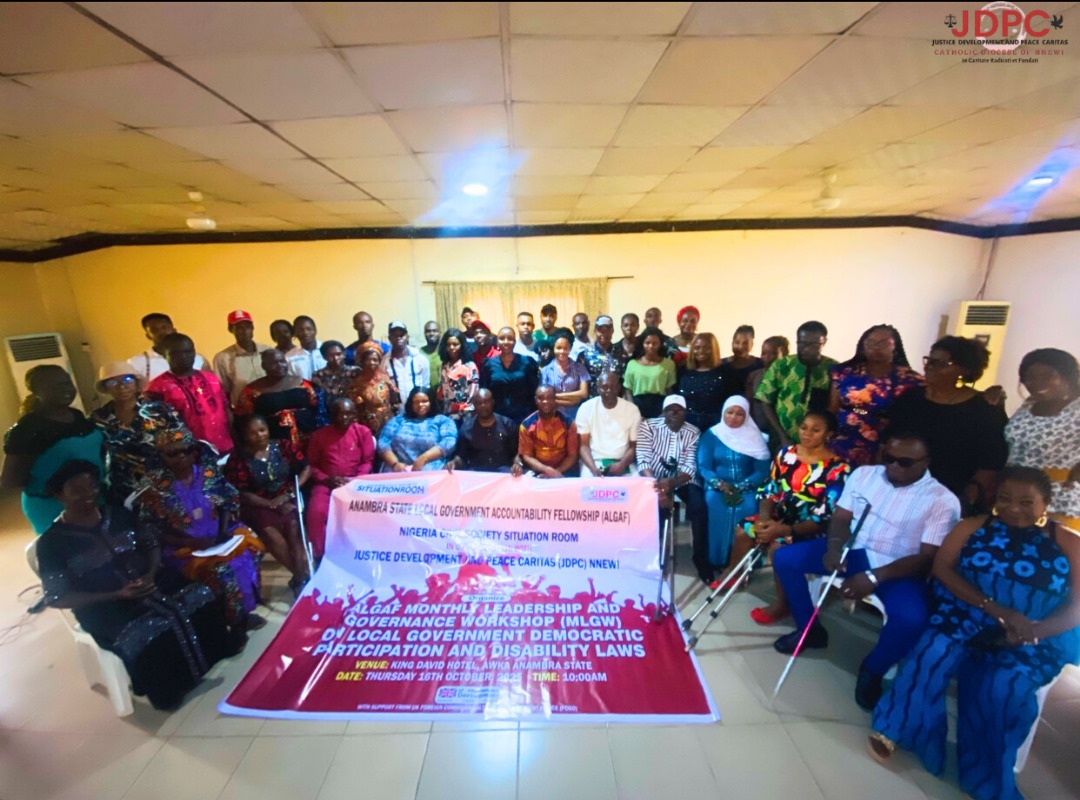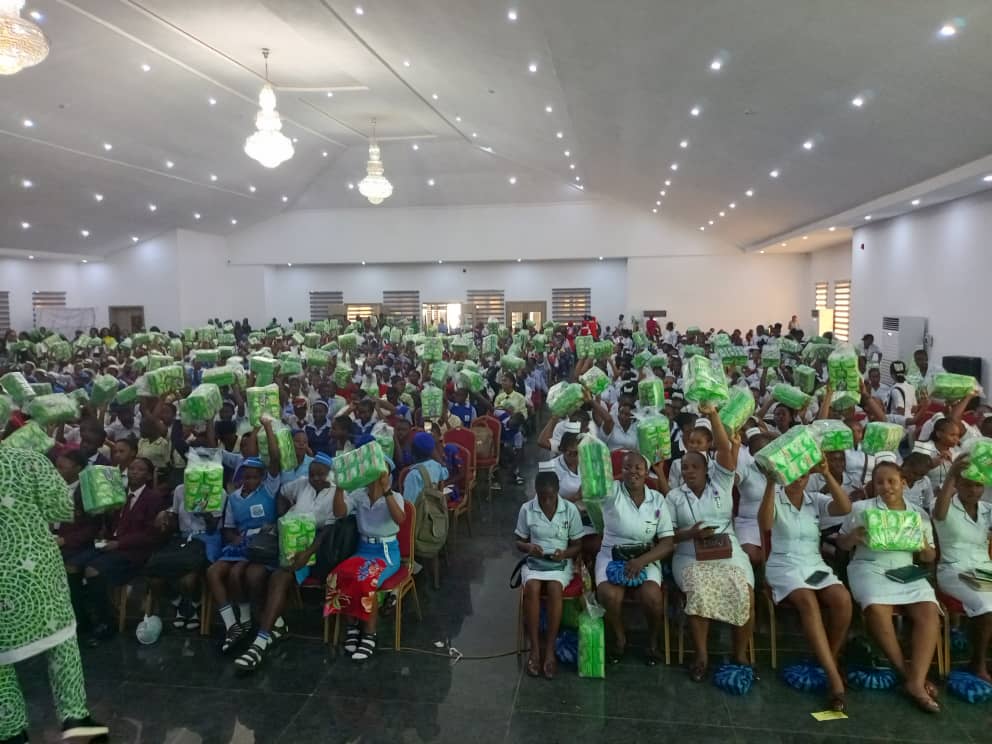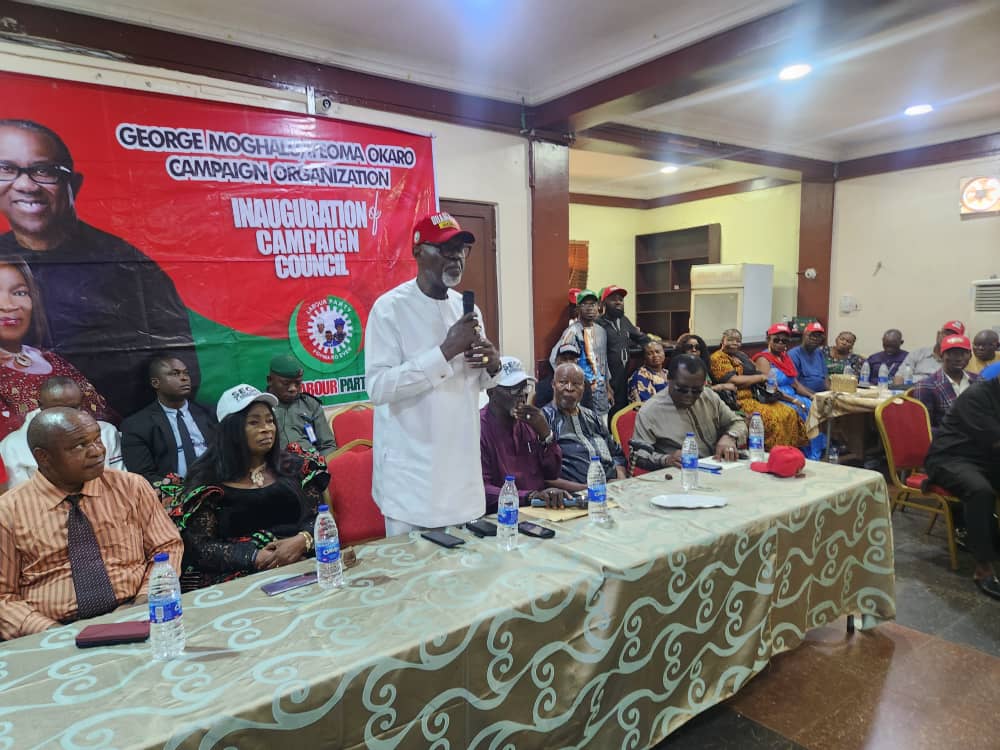The Director of Justice Development and Peace Caritas (JDPC), Nnewi, Rev. Fr. Benedict Chima Okolo, has urged fellows of the Anambra Local Government Accountability Fellowship (ALGAF) and citizens of the state to remain active participants in local governance and contribute meaningfully to the development of their communities.
Fr. Okolo made the call during the ALGAF Monthly Leadership and Governance Workshop on Local Government Democratic Participation and Disability Rights Law.
ALGAF is a governance fellowship project implemented by JDPC Nnewi with technical support from the Nigeria Civil Society Situation Room.
The project is funded by the UK Foreign, Commonwealth and Development Office (FCDO).
It aims to strengthen local government systems and encourage citizens’ participation in governance.
According to Fr. Okolo, the initiative seeks to ensure that citizens are not distant from the workings of government. “This is simply to ensure that citizens are not detached from governance, which rightly belongs to them,” he stated.
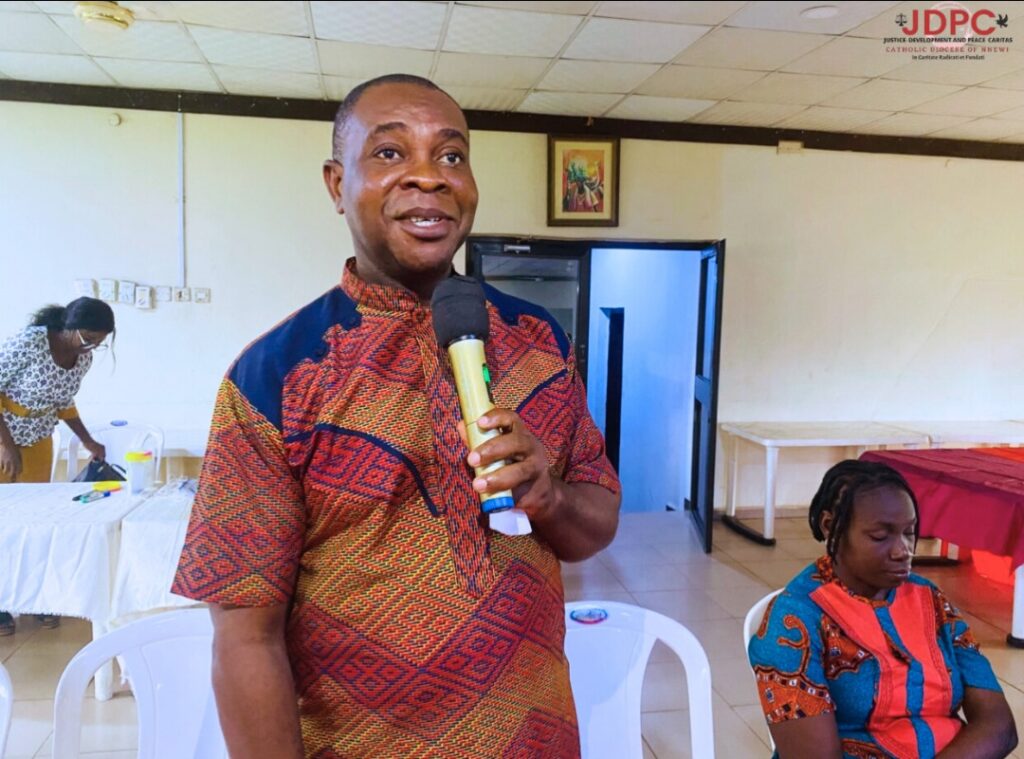
Disability Rights and Inclusion
Chairman of the Joint National Association of Persons with Disabilities (JONAPWD), Anambra State Chapter, Comrade Ugochukwu Okeke, in a paper titled “Disability Law, Inclusion Principle and Its Application, emphasized that disability inclusion is a matter of human rights and social justice, not charity.
He explained that the Anambra State Disability Rights Law (2018) provides and protects the rights of persons with disabilities (PWDs).
“The law captures a wide range of issues relating to the rights, privileges, and welfare of PWDs in Anambra State.
It domesticates the principles of UN Convention on the Rights of Persons with Disabilities (CRPD) and the Nigerian Disability Act,”
Okeke noted that the law prohibits discrimination, criminalizes offensive acts against PWDs, and grants them equal opportunities in all spheres of life.
“Since its enactment, he said, there have been various sensitization campaigns to raise awareness about its provisions and ensure compliance.
He called for stronger implementation of the law, stressing that inclusion goes beyond accessibility.
“Inclusion means ensuring everyone—regardless of disability, gender, age, or background—can participate fully and equally in society.
It’s about removing barriers and creating environments where all feel valued, respected, and empowered,” he explained.
Role of Local Government
Another paper by Comrade Nnamdi Nweke focused on Democratic Participation, Inclusive Governance and Accountability in the Local Government System.
Nweke highlighted that local government, as the third tier of government, is designed to bring governance closer to the people.
“Its primary purpose is to ensure effective service delivery, promote community development, and deepen democracy at the grassroots,” Nweke said.
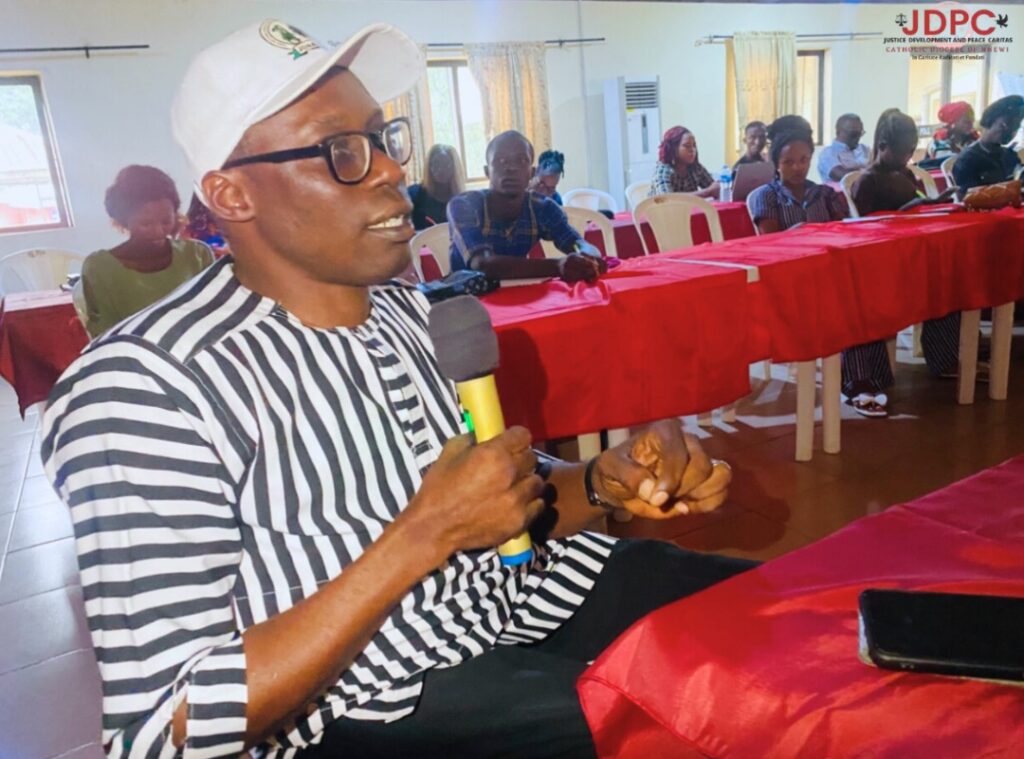
“It should provide essential services like water, sanitation, roads, and public health.”
He lamented that most local governments have failed to deliver on their mandate due to interference from state governments.
“The agitation by the Nigeria Union of Local Government Employees (NULGE) for autonomy cannot be ignored. It remains one of the most protracted struggles in our democracy,” he added.
Nweke recommended policy reforms to strengthen democratic participation and accountability, urging better collaboration among stakeholders, civil society, and development partners.
He also stressed the need for effective monitoring and evaluation mechanisms to track progress and impact.
Enhancing Accountability
One of the JDPC Nnewi ALGAF team leads, Mr. Onyekachi Ololo, explained that ALGAF is training 45 community leaders—comprising youths, women, and persons with disabilities—to promote inclusion and accountability at the grassroots.
“ALGAF equips participants with practical skills in public policy, financial analysis, and digital governance to enable them to assess local budgets and hold officials accountable,” Ololo said.
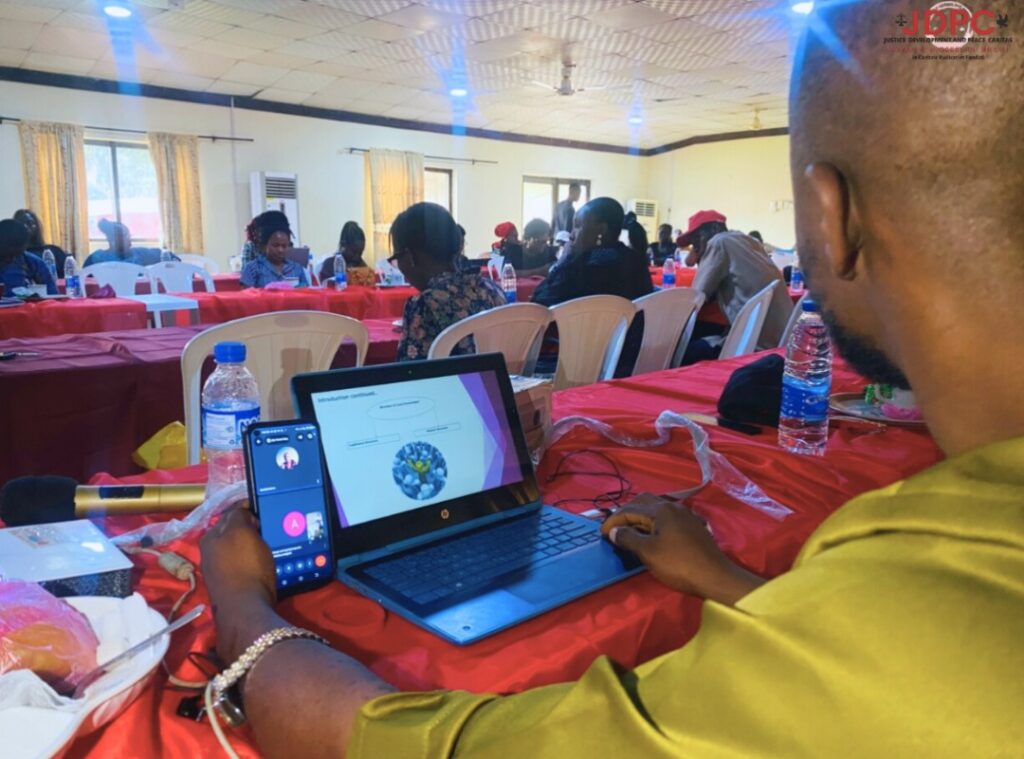
“The goal is to make local governments in Anambra more open and honest so citizens can ensure public funds are judiciously spent and communities get the services they deserve.”
He called for the democratization of local government budget processes and urged the active participation of community stakeholders and civil society organizations.
Ololo also advocated the adoption of a Community Charter of Demand at the local government level, similar to that used by the state government. “It is important for all local governments to join the Open Government Partnership (OGP) and establish functional online platforms where citizens can access information without visiting offices,” he advised.
Timely Initiative
Assessing the initiative, Prof. Chidozie Nwafor of the Department of Psychology, Nnamdi Azikiwe University, Awka, commended JDPC Nnewi for what he described as a timely intervention.
“For far too long, democracy was absent at the local government level. Now that we have elected officials, this fellowship is helping to strengthen accountability and transparency,” he said.
“These fellows will begin asking the right questions to the duty bearers, ensuring that local government administration serves the people.”
The session ended with an interactive discussion where enthusiastic fellows sought clarifications and shared insights on deepening civic participation and promoting inclusive local governance across Anambra State.


